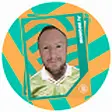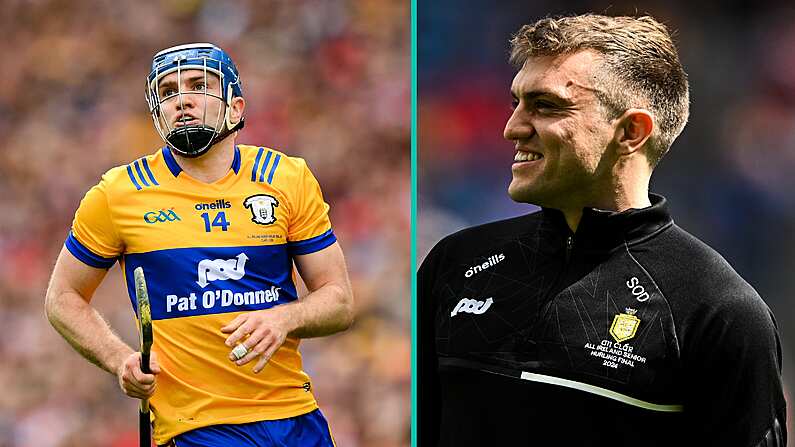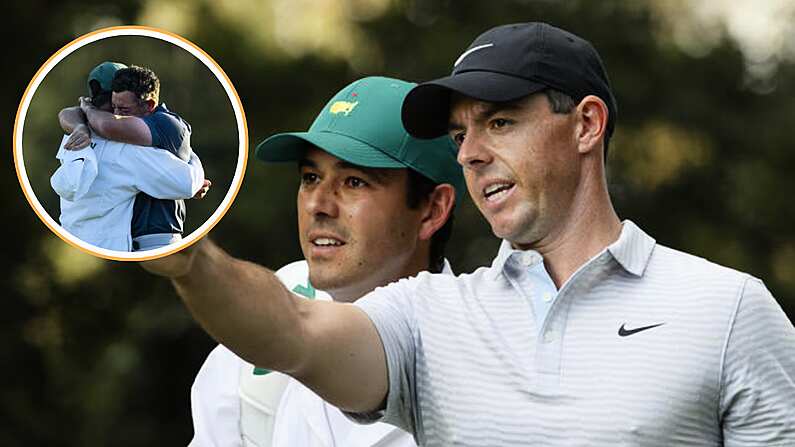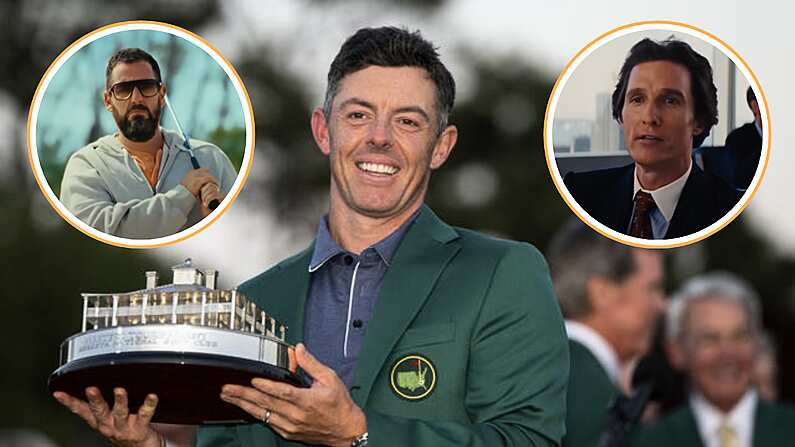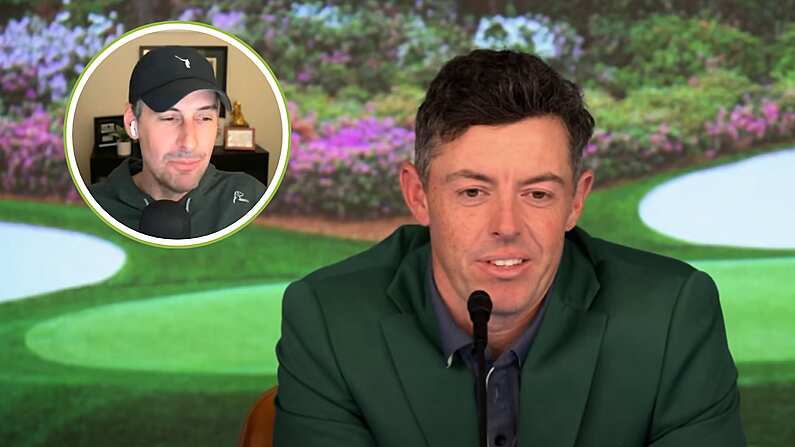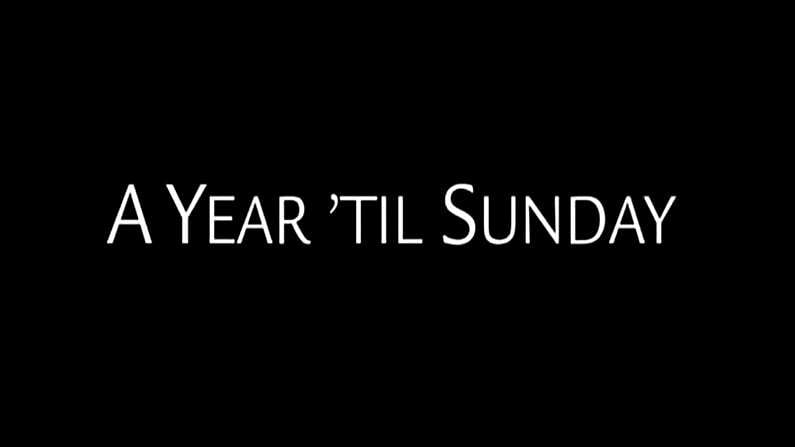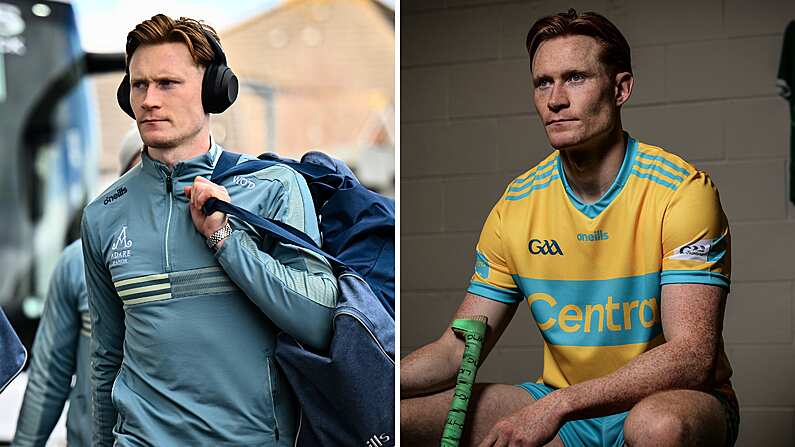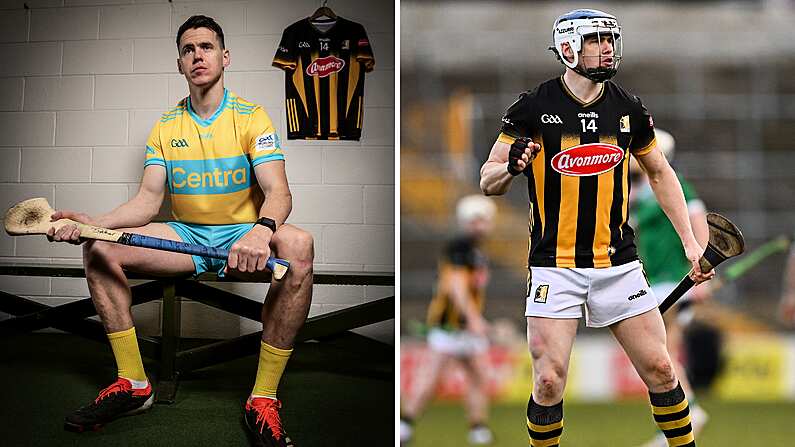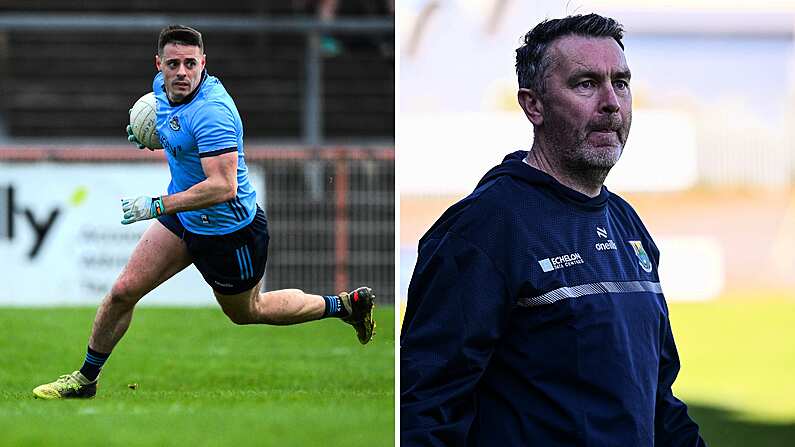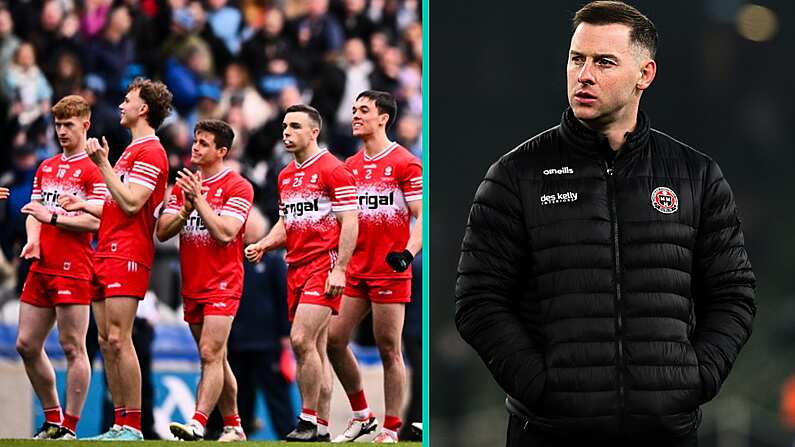In 2011, Dublin took on Meath in the Leinster minor final at Croke Park.
Their starting XV featured eight players who would go on to win senior All-Irelands: Robbie McDaid, Eric Lowndes, John Small, Jack McCaffrey, Emmet Ó Conghaile, Cormac Costello, Paul Mannion and Ciaran Kilkenny. Shane Carthy, David Byrne, Niall Scully and Conor McHugh were also on the panel that year.
Though they did not win the All-Ireland, in hindsight that Dublin side will go down as one of the greatest minor teams ever.
But this is not a story of those who went on to win multiple All-Irelands. This is a story about some of those who did not.
THE KEEPER
The first game Ross O’Hanlon lost with a Dublin underage team was a challenge match against Cork in the build-up to the 2011 Leinster Minor Football Championship. The second defeat he suffered was in his final game in a Dublin jersey five months later.
Always the goalkeeper - the kid who was actually enthusiastic about standing between the sticks - he played through the ranks with the Dublin underage development squads. Lining out for Dublin North, Clontarf clubmate Jack McCaffrey, along with Brian Fenton and Ciaran Kilkenny, were teammates.
When 2011 swung around, O’Hanlon was number one for Dessie Farrell’s minor side. They steamrolled all before them in Leinster. Only Longford provided any real opposition in a low-scoring game.
On the day Dublin beat Wexford by a goal in the senior final, the Dublin minors stamped out Meath’s challenge with a ten-point win.
In the All-Ireland series, they beat a fancied Cork side in the quarters, Galway by two in the semi and then faced Tipperary in the final.
On a Sunday remembered for Stephen Cluxton’s free into Hill 16 which beat Kerry and ended Dublin’s title drought, the minors lost by a point.
The senior keeper had a day he will never forget, so too did the minor one.
Late in the 60 minutes, with Dublin leading by two, a wayward Tipperary pass landed in O’Hanlon’s arms well outside his goal. He soloed once and played a handpass, but the ball was pounced upon by Tipp, eventually rolling to Colman Kennedy who smashed the ball to the net with O’Hanlon absent.
“It wasn’t one of my finest moments,” says O’Hanlon.
“I still get a little bit of stick over that but it’s all in good fun. It’s one of the more disappointing days in my career. It’s football, it happens and you just have to get by it.”
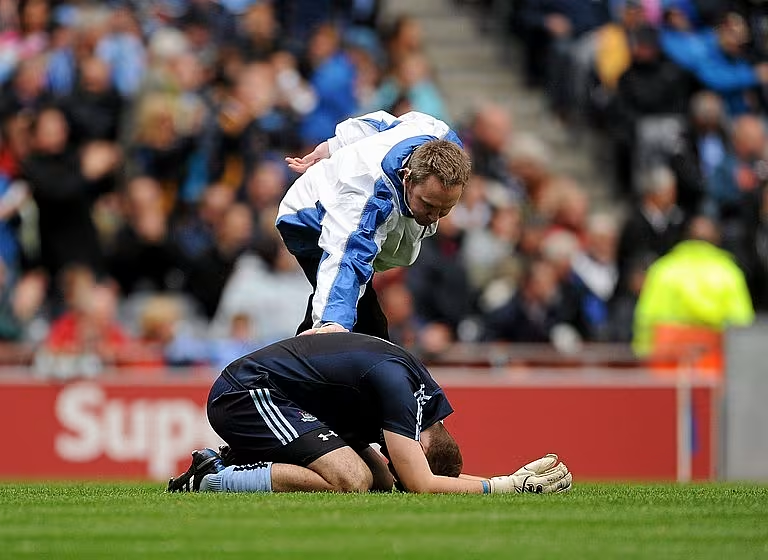
That was his final game for Dublin.
He went for U21 trials but was always just on the fringes of those chosen; Ryan O’Flaherty, John Brian Carthy and Lorcan Molloy being those ahead of him in the pecking order.
Every year after minor, I was there or thereabouts but I didn’t really make it onto the full panel.
I wouldn’t say I went off football but there were a couple of years where it wasn’t at the forefront of what I wanted to do.
Things ended up very disappointingly in the final and part of me just wanted to get a little bit of a break from the real intensity of doing that. I still said I wanted to be on the Dublin team and wanted to be on the U21 team. I never really put in the work that I needed to do.
It’s a big commitment when you’re playing for minors. That was the year I turned 18 and I didn’t have an 18th birthday party. My birthday is in May and it was coming up to championship.
The summer you turn 18 and I’d say, just after the games, I’d have had a couple of drinks; apart from that, it was just football, football, football. At that age, it’s a big commitment to make when everything else is going on around you. Don’t get me wrong, I’d do it again in a heartbeat.
Once I was released from that and minors finished, then you’re not actually attached to anything at that age. It’s not like you’re straight into another team from then where there’s structure again.
Other things took over: I went to college the next year, you want to go travelling, you want to have a bit more freedom.
After years not knowing what he wanted to do career-wise - O’Hanlon did a science degree, a Masters in Business Management and worked in a restaurant - he’s settled in IT Audit at KPMG.
There are skills he acquired during those times with Dublin which aid him to this day.
“Working as a team, leadership, just being determined and having a purpose, having a structure and being disciplined.
“I often get a lot of stick from friends who didn’t play at as high a level as I did, about how disciplined I am. I won’t go out the week of a match. I won’t go out for a few pints the day before a training session.
"Some people who haven’t played at that level don’t understand why you do that. I think that it’s a good thing to be disciplined like that. It’s something you learn from a young age and I definitely bring it into my career.”

O'Hanlon still plays football and now in his ninth year as goalkeeper for the Clontarf seniors.
“When I came back after the Dubs, we played with the club and at the time, it was going through a transition period where a lot of young players were coming through. My age group and the age group above me and above them were all coming into the senior team.
“There was a very young core and these are the lads I’ve been playing club football with for years. I was just happy to be playing with them. We were doing very well, we went up from Division 3 to Division 1.
“I can still play club football and I can still love my football but I do have more freedom to do what I want to do. I went away for a summer to California, Thailand - those are the things you sacrifice when you are playing.”
THE EMIGRANT
Patrick O’Higgins is on the phone from London. He’s been over there for four-and-a-half years.
The Raheny man played midfield with Emmet Ó Conghaile for the Dublin minors in 2011 and won All-Ireland U21 titles in 2012 and 2014 (beating Roscommon in both finals). He started at midfield with Brian Fenton in the latter triumph. In between, he went to law school in the US for a year.
“I finished university [at Trinity] and was training with the senior panel for a couple of months over the winter of 2015,” he says.
The step up is huge. God knows if I would have actually made it or not. There are probably better players than me out there. I would have given it a go. Can I say with certainty that it would have worked out? Probably not.
I took a punt saying, 'On the balance of probabilities here, there's a lot of really good footballers in Dublin - am I better off just putting my career first?' It's obviously one of those things where you look back and wonder if you'd stuck it out, would I have made it? That's life, isn't it.
I had this job lined up in London in a law firm. I had to basically make the decision as to whether to continue to play or move across and starting a training contract to be a solicitor. It was a really good job, it was a good opportunity, so I just moved over.
I worked there for three-and-a-half years. I spent my time living in London, Toronto, a bit of time in New York as well and then after that I moved back to London.
2015 was the last time he really kicked ball.

“I played a few games for my club when I first moved over to London. I flew back a few times but that was it really. I'd be quite rusty now if I picked up a football.
“To be honest with you, I haven't really got any time, unfortunately. I know there's quite an active GAA scene in London but I think a lot of where the training and matches happen is on the other side of the city from where I live. I'm living in east London and with work and stuff, there's no way I could get out for training.”
O'Higgins changed careers in recent times, moving into investment banking and working around Canary Wharf. He lives with a bunch of Irish lads. They have GAA Go but he doesn’t watch every game. On the odd weekend trip home, or at Christmas, he meets up with his Raheny clubmates.
Looking at his former Dublin teammates winning All-Irelands, he wonders how they juggle their sporting and working lives.
“Obviously, when you're playing at that level - and it's hard for me to say this because I never properly played senior football - I don't know how you'd balance it with a professional career. I would say it's difficult.
“Effectively, being a GAA player on a senior team is like being a professional sportsperson. It's hard to have two professional jobs.
“It's a skewed system because the lads don't really get paid but yet they put in all these hours. Then again, if you're winning All-Irelands, it doesn't really matter.”
RAHENY VIA THE PHILIPPINES
Rutherson Real was ten when he moved to Ireland from the Philippines. His mother had arrived a year earlier for work. Rutherson, his father and two brothers followed.
“To be honest with you, I never knew anything about Gah,” he says.
When I was in fifth class, I heard about trials for the school. I said, ‘Ah, I’ll try it out’.
When I started playing GAA, I wasn’t playing for Raheny. After two years, Gavin Ivory’s dad asked me to go for a trial.
From then on, that team - Gavin Ivory and Fento’s - they were unbeaten for four years. I wasn’t up to that standard, I dropped away to the B-team.
The following year, I got better. After that, I went on to the A-team again for Raheny.
Real played with the Dublin North development squads, progressing to minor where he lined out at corner-back for every game between the first round of the 2011 Leinster Minor Championship against Westmeath to the defeat against Tipp.

“It was tough enough to keep your place,” says Real.
“In the semi-final, I had quite a poor game against Galway. I got taken off.
“The final, I wasn’t sure if I was starting or not. A couple of days before, we had a team meeting. I was delighted to hear my name. It was relief in a way, I thought I was going to get dropped.
“All those talented players, it was unbelievable playing with them. You had a big chance of winning because it was such a talented bunch. It’s a relief they were on my team, rather than playing against them.
“I’d see them a lot; Coppers, you’d see them in there.”
Though he’d been near ever-present on that minor side, Real didn’t receive a call-up for an U21 trial the following year. One did come in 2013 when Dessie Farrell took over.
“I was only coming back from an injury, a six or seven-month injury," he says.
"I did have a couple of trials and unfortunately, I got turned down. After the minors, I was injury prone and wasn’t looking after my weight. I was down about it but I love playing football. It was just tough at the time.
“With the 2014 U21s, I didn't play one minute. I barely made the panel. I was among the subs. It was tough but you had the best players who are playing with the senior team now.”
Real completed a Level 6 Social Care course in college but like many who do third level courses, deep down he wasn’t sure if it was for him. He has spent the last six years working for the Celtic Whiskey Shop on Dawson St. but hopes to return to education.
On the football pitch, things are looking up. He’s one of the senior players on a rising Raheny side. Last year, he was nominated for a Dub Star.

“I did a couple of internal games with the Dubs at the start of the year,” he says.
I didn’t get the call-up to the O’Byrne Cup team.
You’d still have the likes of Kev Mac, Michael Darragh MacAuley playing, coming back from injury. It was a good experience to see, ‘This is the kind of level they have in training’. Everyone working hard, everyone bringing that physicality and mentality as well.
I’m not saying I don’t think I’m good enough but I’m getting there. In the last two years, I’m getting to that tip-top shape that I want to be at. I’d be hoping for a call-up for trials.
The possibility of splitting Dublin into North, South and West, just like those development squads, is raised. It would allow more players who would be considered inter-county quality in most other counties to experience football at that level.
“For myself, I like that challenge of having that one Dublin team,” says Real.
“It would be more of a privilege to play for that team because, even being on the panel, you have to work hard for it.”
ON THE FRINGES
Graham Hannigan has played for Dublin, just not at the level he wants and believes he is capable of.
The Castleknock man has lined out in the blue jersey at minor (he started at corner-back in that 2011 final defeat to Tipperary) and U21 (he has two All-Ireland medals). He also has a 2015 National League winner’s medal.
It’s a senior championship spot which eludes. Spending half-an-hour in his company, you would not bet against him doing so - you can’t but want him to get there.
Following a superb 2016 Dublin championship with his club - one which saw Castleknock reach their first senior county final - Hannigan got the call from Jim Gavin. The circumstances - life, really - did not mesh with the requirements of being an inter-county player.
“Jim called me for the 2017 season and said, ‘We’re seriously having a look at you’. I thought everything was happy days,” tells Hannigan.
My son, Charlie, was just a new-born. I was only getting two or three hours sleep a night. That was having an effect. We were training early in the morning, just for pre-season, and it was hard to commit to it.
I thought I was fit and feeling good. I thought, ‘This is my time’ but I had to tell Jim I had to step back from it. He was completely understanding, he said, ‘Yeah, your family comes first’.
Two years earlier, he had made it further down the road but was one of those dropped when Gavin named his championship panel.

“I got thrown into the O’Byrne Cup at that stage. There were a lot of the senior lads around, Denis Bastick, James McCarthy, Philly [McMahon], Michael Darragh [MacAuley]; you were getting good exposure of playing with good All-Ireland winners. I learned a lot off Denis Bastick, he was just so driven - I’ve never seen a man so driven and how dedicated he was to his sport.
“I played quite well for my first year being there. I was playing wing-back. I would have said I was one of the main players that year in the O’Byrne Cup. I made the league squad, which was a big deal for me - I was only 20, 21. I was happy to be making inroads.
“I didn’t get as much game time as I wanted to that year in the league. Again, you had the likes of Diarmuid Connolly, Bernard Brogan, all these filtering back in and they needed their game time.
“It’s not that I was happy to let them go in but I knew for the long-term, for Dublin football, these lads need their game time to go on and win All-Ireland after All-Ireland, which is what they’ve done.”
It was a challenge game against Cork in 2011 (the one which was Ross O'Hanlon's first defeat) which put Hannigan on the path he now walks.
A Cork corner-forward hit 3-3 in the opening ten minutes. At half-time, the team got a bollocking from Dessie Farrell and Hannigan got this chance.
“I ate him up,” says Hannigan.
“I laid down a marker and the rest of the lads responded to that, ‘Yeah. Graham might not be the main player but he’s there to do a job’."
That corner-back spot was his.
The heartbreak with which that championship ended for the Dublin minors has stayed with Hannigan, and others.
To this day, it’s not a sick feeling but an empty feeling - it’s like someone has taken the wind out of you and you’re gasping for breath.
That fluke goal, it won’t ever happen again. I can’t see it happening in a senior final again.
I’ve learned a lot from that and I’m sure the likes of Eric Lowndes, John Small, all these players know how valuable the ball is and not to overplay it.
That’s why Dublin are so good, there’s 12 or 15 lads there from that squad and they’ve hurt so much.
The following year, at the Leinster semi-final stage with Dublin in need of a defender, Hannigan was called up to the U21s. It was Jim Gavin’s final year as manager.

“I got thrown in, thought I was making an impression but didn’t know I wasn’t playing the way they wanted to play; if you’re a back, you’re a back but you have the licence to go forward when you need to. I was just mad to get on the ball and impress like anyone would be if they were thrown in at that late stage.
“That was an enjoyable time but I was only 19; you didn’t really mind if you weren’t getting your game because you’re in a very good squad.
“Later on, they won the All-Ireland but if you asked me if I have two U21 All-Irelands, I’d say, ‘No, not really’.”
The second of those medals was won in 2014. It was a campaign in which Dessie Farrell told the team, many of whom had played in at the 2011 minor final, to draw upon the pain of that game.
Hannigan stepped off the bench as Dublin beat Roscommon by nine points and captain Jack McCaffrey lifted the cup in Tullamore.
Now in his mid-20s, Hannigan finished a degree in Strength and Conditioning last year. He works as a teacher with Youth Reach in Ballyfermot.
“You get kids with a load of issues; depression, anxiety,” he says.
“They know I played football at some sort of high level. They’re able to relate to you and say, ‘Sport, it’s not just hobby, it can be a life choice’.
“It's second chance education, so they might have dropped out of school. It’s between 16 and 20. They have two years to complete it with me. They do their Sport and Recreation course with me. They do Gaelic games as one of their modules. I’d have a keen interest in that.
“[I'm] Making a difference, especially because you get a lot of them who are overweight - they don’t know what they should be eating.
“It’s very easy where they are growing up to get into drugs, get into part-time jobs and not have any ambition. I try to come in and say to them, ‘I might not have been the best in education but I’m now working in education. There are different paths, different routes’.
“I like giving that back to them. They know they have a chance. If your parents are not supporting you, you can still support yourself. If it’s a little bit of help from me or other colleagues, it’s good to give to them.”

Playing for the Dubs is still the ambition for Hannigan but he’s also a pragmatist. If the right situation came along, he would consider transferring to another county.
“There has been talk,” he says.
I have relations in Tipperary and Tyrone. One Tyrone player, who is playing at the moment, has been onto me.
I was away with one of the Tyrone footballers [in the US] and he did a bit of digging. Would I like to play for another county? Probably not. Would I do it? I don’t know.
I’ve been talking to Jack Smith [Skerries Harps player who transferred to Westmeath], he seems to enjoy it. Nicky Devereaux’s brother Dave plays for Wicklow, I’d be close friends with them.
I know Conor Cox [who transferred from Kerry to Roscommon] well from my San Fran days. He’s an exceptional footballer. I did a job on him when I was over there.
There were plenty of lads I was away with who said, ‘You’d get on any other county team if you decide’. Do I want that? I’m a Dub, I’ll never lose my Dublin accent. I’ll never lose the love for the Dublin jersey or the Dublin team.
It depends on the situation. I wouldn’t say no to it; I’m not saying yes to it. If another county came and said I could add value to them, I’ll have a coffee with them, there’s no harm in having a coffee with them and seeing what their plans are.
The dream of playing for Dublin stems from the mid-2000s, attending games with his family and seeing how much it meant to them.
"It’s the jersey, you’d do anything for a jersey," he says.
"I wouldn’t wear a Dublin jersey until I’m able to represent the Dublin jersey. I’ve represented it but not to my full potential, as I think.
"I would love if Jim Gavin called me again to say, ‘Graham, we’re interested in you’ but it’s not for me to say, ‘Jim, call me’.
"It’s about playing well with my club and I am at the moment. I know they have been out watching myself and other players. I’m having a good championship. If I’m doing that well, they’re my number one priority and I'd love to represent them."



